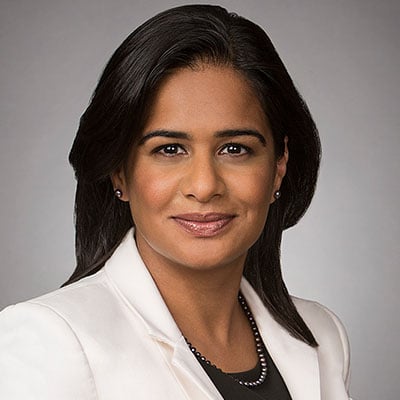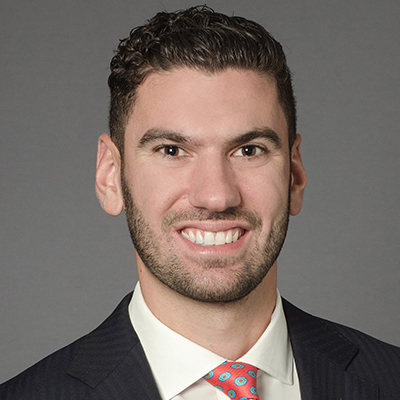Private Fund Sponsor Pay-to-Play Restrictions for Upcoming U.S. Election Cycle
As the U.S. election cycle gets fully underway for Fall 2024, private fund sponsors should remain focused on Advisers Act and other restrictions on political contributions and political activities applicable to advisers and their employees and agents with respect to state or local elected officials and candidates.
For example, the Harris campaign is now within the scope of the SEC’s political contributions rule (the “Pay-to-Play Rule”) due to Vice President Kamala Harris’s selection of current Minnesota Governor Tim Walz as her running mate.
Given the SEC’s vigorous enforcement of the Pay-to-Play Rule, we recommend advisers remind employees about their obligations under applicable political contribution policies and the potentially severe consequences of any Pay-to-Play Rule violations. Advisers should also review any prior communications permitting contributions and activities in support of campaigns this election cycle and clarify any prior guidance or pre-approvals as needed.
Pay-to-Play Rule Overview
The Pay-to-Play Rule prohibits an adviser (including certain advisers exempt from registration, as detailed below) from providing investment advisory services for compensation to a government entity1 (generally state or local government plans) within two years after a contribution2 to an official3 of the government entity is made by the adviser or any covered associate4 of the adviser. In addition, an adviser cannot coordinate, or solicit5 any person or political action committee to make, any (i) contribution to an official of a government entity to which the adviser is providing or seeking to provide investment advisory services, or (ii) payment6 to a political party of a state or locality where the adviser is providing or seeking to provide advisory services to a governmental entity.7
An adviser’s current and anticipated investor base impacts the extent to which it needs to restrict political contributions and payments. For example, now that Gov. Walz is the Democratic party’s candidate for Vice President, whether any political contributions and payments by an adviser and its covered associates to the Harris campaign violate the Pay-to-Play Rule will depend on whether the adviser provides (or is seeking to provide) advisory services to a government entity, directly or through an investment pool, from Minnesota and whether the Minnesota Governor (i) is directly or indirectly responsible for, or can influence the outcome of, the hiring of an investment adviser by that Minnesota government entity; or (ii) has authority to appoint any person who is directly or indirectly responsible for, or can influence the outcome of, the hiring of an investment adviser by that Minnesota government entity.8 Furthermore, although a contribution or payment might not violate the Pay-to-Play Rule at the time it is made, an adviser needs to consider how a contribution or payment could affect its future plans and ability to comply with the Pay-to-Play Rule, particularly given the two-year impact of a contribution (e.g., an adviser might choose to prohibit a contribution to a state officeholder or candidate because the adviser expects to target government entity investors from that state in connection with a fundraise in the next two years).
Key Reminders
Below are some other key reminders about the Pay-to-Play Rule. We encourage advisers to discuss questions related to specific fact patterns with their usual Kirkland regulatory contact given the technical nature of the Pay-to-Play Rule, the breadth of its scope, and the SEC’s extensive history of pursuing enforcement actions in this area.
- Rule Applies to Registered and Certain Exempt Advisers. The Pay-to-Play Rule applies to SEC-registered investment advisers as well as exempt reporting advisers and foreign private advisers exempt from registration.
- Identifying Government Entities. Advisers need to identify government entities advised directly by the adviser as well as government entities invested in or solicited to invest in covered investment pools advised by the adviser (including government entities invested through funds-of-one).9 Advisers should also confirm employees or others working on the adviser’s behalf, such as placement agents, understand the scope of the Pay-to-Play Rule so that current and prospective government entity clients are properly identified.
- Identifying Covered Associates and Applying Look Backs and Look Forwards. Given the broad definition of covered associate, advisers should err on the side of caution when determining who is a covered associate and consider their existing policies, which may be broader than the Pay-to-Play Rule. Advisers may also need to review political contribution activity of any hires in process. The Pay-to-Play Rule’s default look back for contributions made by covered associates is two years, but that period is shortened to six months for any person who becomes a covered associate and is not involved in solicitation activities on behalf of the adviser. If someone stops being a covered associate due to a change in role or departure from the firm, the adviser still has to consider any contributions made by that person if they were made within the last two years (or six months, if applicable).
- Fundraising and Political Events. Persons hosting fundraisers or otherwise involved in a candidate’s fundraising activities (e.g., sending invitations on behalf of candidates or political parties) could be deemed to be making contributions or coordinating or soliciting contributions on behalf of candidates so we recommend participation in these types of activities be subject to pre-approval requirements. In addition, employees may already have plans to attend upcoming events that support the Harris campaign, which may need to be (re)evaluated now that Vice President Harris has selected Gov. Walz as her running mate.
- Prohibitions Not Limited to Cash Contributions/Payments. Making an in-kind contribution such as a gift, subscription, loan, advance, deposit of money or anything else of value (e.g., hosting an event or making office space available for use) can be a prohibited contribution or payment under the Pay-to-Play Rule. Volunteering time in support of a campaign is generally not prohibited so long as the person is not involved in fundraising activities.
- Contributions to PACs and Political Parties. While certain donations to PACs and political parties are permissible under the Pay-to-Play Rule, advisers need to evaluate how any donation is expected to be used and may need to prohibit certain donations or require a written “comfort letter” or other documentation from recipients confirming that a donation will not be used in a manner prohibited by the Pay-to-Play Rule.
- Anti-Circumvention. The Pay-to-Play Rule prohibits advisers and their covered associates from doing anything indirectly, which, if done directly, would violate the Pay-to-Play Rule. Advisers should encourage employees to ask questions before making any contributions or participating in any political activities if the adviser’s policies or compliance communications do not explicitly permit such contributions or activity.
- Stringent SEC Oversight; Strict Liability; Potentially Significant Penalties. The SEC has historically taken a vigorous approach to investigating and pursuing enforcement actions against advisers for suspected violations of the Pay-to-Play Rule. While the SEC requests information about political contributions during SEC examinations, the SEC has also opened investigations based on information about political contributions and related activity in public databases and press reports. In addition, the Pay-to-Play Rule contains few exceptions, and in our experience, it is nearly impossible to cure a violation once it has occurred.10 Furthermore, the Pay-to-Play Rule is a strict liability rule so an adviser or its covered associates do not have to have any intent to influence a government official for there to be a violation. The SEC has successfully pursued enforcement actions against advisers and their covered associates for technical violations of the Pay-to-Play Rule (e.g., a political contribution slightly exceeds the threshold of permitted de minimis contributions). For these reasons, advisers should remind their employees of the potentially severe consequences of any failure to comply with the Pay-to-Play Rule (e.g., costs incurred responding to investigation inquiries/enforcement actions, foregoing compensation from certain government entity clients for up to two years, penalties imposed for violations, etc.).
- Other Laws. This summary is focused on the Pay-to-Play Rule. An adviser, its employees, and others soliciting clients and fund investors on behalf an adviser may be subject to additional rules and regulations or investor policies (as a matter of law, condition to investment, side letter obligation or otherwise) not discussed herein.
If you have any questions, please contact the Kirkland regulatory attorneys with whom you regularly work.
1. Government entity includes state and local agencies and investment pools and plans they sponsored or established (e.g., private funds, retirement plans, 529 plans, participant-directed plans, etc.), and officers, agents and employees thereof in their official capacity. See Rule 206(4)-5(f)(5) for definition of “government entity” and Rule 206(4)-5(f)(8) for definition of “plan or program of a government entity.” As a result, U.S. state, county, and municipal plans and many state university-affiliated investors are covered by the definition. The Pay-to-Play Rule also reaches certain indirect advisory relationships, such as a government entity’s direct investment in an adviser’s private fund. ↩
2. Contribution is broadly defined to cover anything of value (e.g., cash, gifts, loans, in-kind contributions, etc.) made for the purpose of influencing any election for federal, state or local office, for payment of debt incurred in connection with a federal, state or local election, or for a state or local office election winner’s transition or inaugural expenses. See Rule 206(4)-5(f)(1) for definition of “contribution.” ↩
3. Official includes any person (or applicable election committee) who, at the time of a contribution, is a state or local government officeholder, candidate, or successful candidate if the office held or sought is directly or indirectly responsible for hiring an adviser for a government entity, can influence a government entity’s decision to hire an adviser, or has authority to appoint someone who has that responsibility or influence. See Rule 206(4)-5(f)(6) for definition of “official.” ↩
4. Covered associate is broadly defined and includes an adviser’s general partners/managing members, executive officers, employees in charge of principal business functions, employees who perform policy-making functions and employees who solicit government entities for the adviser or who directly or indirectly supervise such employees. In certain cases, non-employees, such as certain independent contractors acting on behalf of the adviser, might be covered associates. Covered associate also includes any political action committee controlled by the adviser or its covered associates. See Rule 206(4)-5(f)(2) for definition of “covered associate” and Rule 206(4)-5(f)(4) for definition of “executive officer.” Many advisers adopt policies broader than the Pay-to-Play Rule and cover all or most employees and, in many cases, spouses and/or other immediate family members. ↩
5. Any communication made to obtain or retain a client or investor for, or refer a client or investor to, an adviser is a solicitation of investment advisory services. Any communication made to obtain or arrange a contribution or payment is a solicitation. See Rule 206(4)-5(f)(10) for definition of “solicit.” ↩
6. Payment is broadly defined to cover anything of value (e.g., cash, gifts, loans, in-kind contributions, etc.). See Rule 206(4)-5(f)(7) for definition of “payment.” ↩
7. The Pay-to-Play Rule also prohibits an adviser from providing or agreeing to provide, directly or indirectly, payment to any person to solicit a government entity for investment advisory services unless the person is a regulated person (e.g., a broker-dealer) or an officer or employee of the adviser. ↩
8. The Minnesota Governor has the requisite authority over at least certain state plans (e.g., Minnesota State Retirement System (MSRS), Public Employees Retirement Association (PERA), and Teachers Retirement Association (TRA) plans). Therefore, the default assumption should be that making contributions to or coordinating or soliciting contributions on behalf of the Harris campaign could trigger a violation of the Pay-to-Play Rule if an adviser is providing or is seeking to provide advisory services to a Minnesota government entity. ↩
9. The Pay-to-Play Rule treats an adviser to certain investment pools (see Rule 206(4)-5(f)(3) for definition of covered investment pool) in which a government entity invests or is solicited to invest as though the adviser were providing or seeking to provide investment advisory services directly to the government entity. ↩
10. For example, the Pay-to-Play Rule permits de minimis contributions, but the limits are comparatively low ($350 per individual per election cycle if the individual is entitled to vote for the official at the time of the contribution and otherwise $150 per individual per election cycle). No de minimis exception exists for solicitation activities. The Pay-to-Play Rule’s exception for returned contributions is so narrow that it can rarely be used. The SEC is also permitted to grant exemptive relief from the Rule’s prohibitions, but we do not believe advisers should expect this to be a viable option. ↩





















